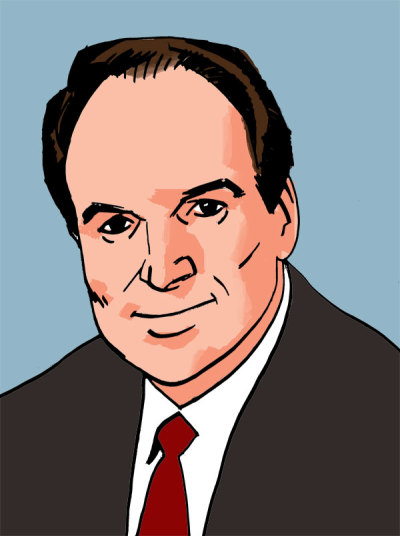The Houston Subpoenas and the Criminalization of the Pulpit

The first step toward criminalization of the American pulpit may have just been taken in Houston. It is a frightening moment not just for the church in America's fourth largest city, but for the pulpit throughout the United States.
Last June, after an intense public debate and the protestations of 400 Houston-area pastors, the City Council, at the behest of lesbian Mayor Annise Parker's administration, passed a non-discrimination ordinance that would permit men to use women's restrooms and women to access men's, based on trans-gender concerns among others.
A petition drive to put the Council's mandate on the ballot collected some 50,000 signatures, almost three times those required. The city administration rejected the petition, claiming irregularities. A group not including the pastors filed suit against the Council's action.
Now city attorneys are demanding sermons and other statements that will be inspected presumably for comments that might be construed as anti-homosexual.
I serve a Houston-area church, and my first thought on reading of the shocking action was of an experience in the former Soviet bloc where I ministered not long after the collapse of communism.
I was part of a group conducting a pastor's conference. After one of the sessions, we noticed consternation among the church leaders. They had spotted a "red pastor" in the room. This was the designation given pastors who would spy on their fellow preachers, and report any deviation from the Communist Party line, or the dictates of a local regime.
I also remembered Martin Niemoeller and other Nazi-era pastors in Germany. When Niemoeller awoke to the truth about Hitler, his became one of the most eloquent voices among many against the Hitler regime. Priests, pastors, and rabbis were in the first groups to be imprisoned at Dachau. More than a thousand would die there.
Mayor Parker is a brilliant, able leader. Her understanding of finance and other policy issues have benefited the whole region where I live and serve. That her administration might be remembered historically as the first in American history to attempt to investigate the pulpit is a disappointment.
Several years ago I conducted a large funeral at our church for a fallen firefighter. Mayor Parker was present, and wanted to speak about the public servant who had lost his life helping Houston's citizens. I debated with myself whether or not to stand when she stepped onto the platform. The rumblings that would explode into full view in the bathroom ordinance were already stirring in our community. Yet, when she came to the pulpit I did stand to honor the Office of Mayor that she occupied. I felt it would be petty and disrespectful to do otherwise.
How sad that Mayor Parker's administration itself has fallen into pettiness and disrespect for the sanctity of the pulpit. When I read of the Houston subpoenas I recalled work by Yale Professor Harry S. Stout. He studied the American pulpit in the Colonial era, and details findings in his book, The New England Soul: Preaching and Religious Culture in Colonial New England, and in other writings.
More than 2,000 times a week by 1776, New Englanders were hearing pulpiteers explain the deeper implications of Parliamentary dominance and abuse. They revealed the larger issues, the authority of Scripture and the destiny they believed New England had been given as crucial for proclaiming God's Kingdom, according to Stout.
New England preachers understood about the power abuses they perceived in the British Parliament. When human regimes clashed with that eternal Kingdom, the pastors were not afraid to say so. There are even deeper issues now: the tromping of the Constitution and the setting of a path that could find reason for criminalizing the pulpit.
To be fair, preachers of all religions must give careful thought when they enter the pulpit. The aim must always be to deliver God's word, not human distortions. Truth must always be balanced with grace and grace with truth. And when the hard message must be spoken, it must be proclaimed with a broken, compassionate heart, and should always end with hope. Pulpiteers do not have the authority to inflame anger or incite violence. Those who enter the pulpit must recognize the high trust given them, and speak with discernment and discretion as well as courage. They have not only the right but the responsibility to speak about moral and ethical issues in their society.
Tyrants have tried across history to mute the pulpit, and have failed again and again. When the Prophet Amos would not adjust his message to suit King Jeroboam, the king's religious lackey, Amaziah, ordered him not to prophesy at Jeroboam's sanctuary and house. (See Amos 7)
In a previous Christian Post column I wrote about the sequence often followed in the attempt to silence churches: caricaturization to marginalization to vilification to villainization to criminalization to elimination.
One hopes we are not seeing in Houston the beginning of the attempt to criminalize the pulpit as its occupants speak on moral and ethical issues.




























